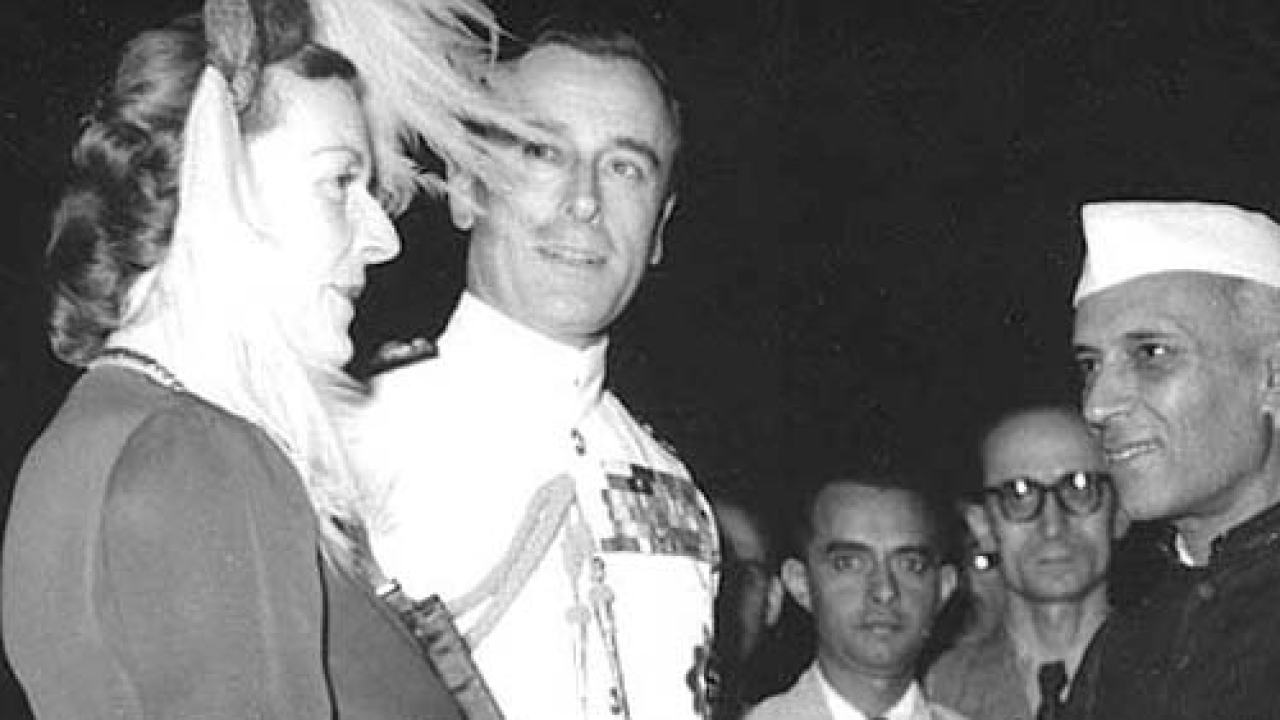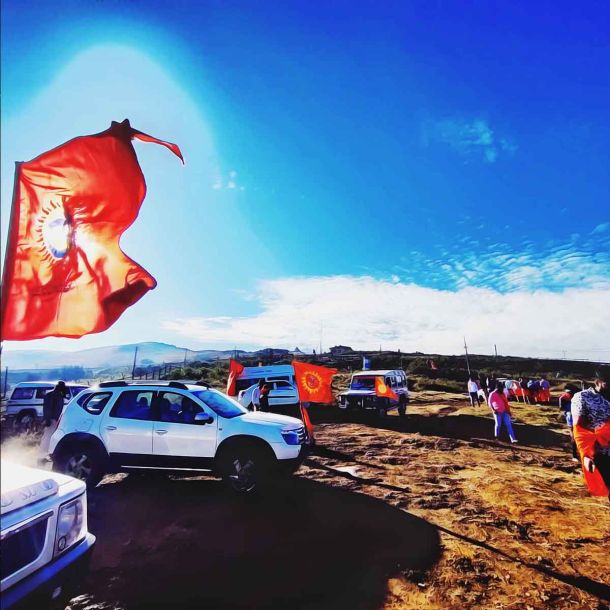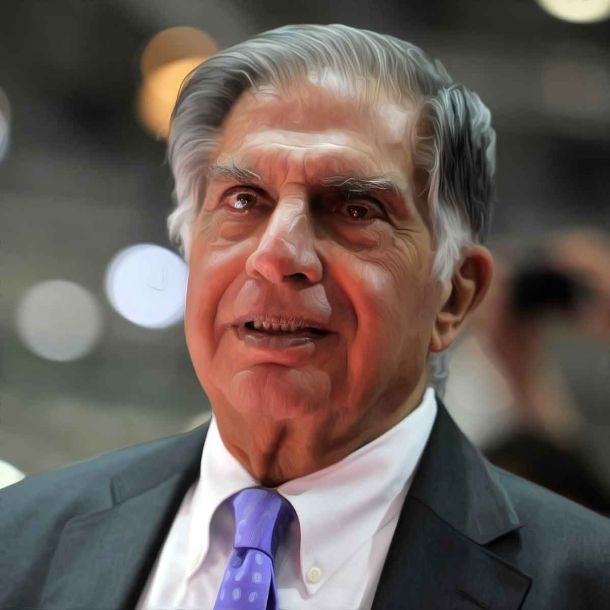Sanatan Articles
Satyaagrah
Written on
Satyaagrah
Written on
Satyaagrah
Written on
Satyaagrah
Written on
Satyaagrah
Written on
JOIN SATYAAGRAH SOCIAL MEDIA
Jawaharlal Nehru: History has been kinder to him because he rewrote it

Jawaharlal Nehru may well go down in the history of the country as one of the ablest leaders and endearing personalities. From the demands of Purna Swaraj to spearheading the Indian leadership pre-and post-Independence, his contributions to the Indian cause are legion.
However, the most important times of his stint as the Prime Minister are littered with grave mistakes that threatened to moribund the rising Indian state. Even in the Macaulay tinted version of history parroted by the Congress, his contributions pale in comparison to Mohandas Gandhi who too benefited from the same.
Kashmir
October of 1947, Pashtun tribesmen invaded Kashmir, thus, began the war for Kashmir. Nehru foolishly hoping for a peaceful resolution against an openly belligerent state, took the matter to the United Nations, clouding the issue, allowing Pakistan to occupy a third of the strife-torn state.
He stuck to his guns and tried to save face rather than accepting a way that worked in favour of one that did not. After the Accession was signed and a cabinet meeting took place, Nehru (as Field Marshall Sam Mankeshaw recalls) was busy talking about United Nations and various other countries. Till Sardar Patel, the then Deputy PM and Home Minister, losing his temper asks “Jawaharlal, do you want Kashmir or want to give it away? “Of course, I want Kashmir” came the reply with a lot of emphasis being put in.
On being requested to give his orders to the then Director of Military Operation Mankeshaw, Sardar Patel sensed hesitation. And before Nehru could reply, he turned towards Manekshaw and told him that he has his orders and the future Field Marshall walked out and started flying in his troops. As a result, Kashmir became ours minus the modern-day POK.
India-China war
Another testing time that comes to mind is the Sino-Indian war. Again, under the leadership of Nehru. However, the actual defeat of the Army took place when Defence Minister V.K. Krishna Menon under the guise of “good governance”, not really understanding the system of The Army, starting bringing in changes antithetical to the very basis of The Army. This led to the resignation of the then Army Chief General Thimayya and starting of an enquiry against the then Major General Sam Manekshaw.
Essentially robbing the army of effective leadership in the most trying of times.
Nehru had his reasons for the practice of ahimsa. He rubbished the idea of military power as far back as 1947 citing the Police were enough to keep peace in the country though he had to eat his own words during the Accession of Kashmir and of the fear of a Military coup borne of the many young post world war 2 nations like Pakistan succumbing to the same.
Nehru proclaimed in the Parliament that the NEFA (North Eastern Frontier Agency, now Arunachal Pradesh) was being handed over to the Army. This act was against the Indian interests and without the allotment of added resources, this was a futile gesture. This allowed the Chinese to paint the Indians as aggressors.
Thimayya wanted Nehru to abrogate the mistake, something Nehru knew was political Hara-kiri as he would lose the trust of the Parliament. Fearing the General and his actions, at least in his mind, Nehru and Menon turned to subterfuge to discredit him. Playing a convoluted game for meeting the ends.
Thimayya seething at the disrespect of being painted as the one responsible for the Parliament debacle, signed his resignation papers. They were rejected by Nehru in a private meeting while subsequently leaking the news, forcing the general to retire with the message perceived by the public of voluntary retirement. Hence, in the minds of people, Nehru and Menon foiled the ‘danger’ posed by General Thimayya- one of the most brilliant Generals on this side of Sam Manekshaw.
Speaking of Manekshaw, he too was disqualified from active leadership by launching a Court of Inquiry against him on the grounds of him being more British than Indian and more loyal to the British Queen than the Indian Prime Minister. He had asked Menon not to ask him what he thought of General Thimayya as he was his senior and such actions on part of subordinates towards senior create dissension in the Army.
In their absence, Nehru turned to favourites of his Lt. Gen. Brij Mohan Kaul and P.N. Thapar who were famous, at that time in the Army, for being yes men. On being asked if the Army was ready for war, lacking in moral courage, replied in the positive. At that time there was a serious dearth of arms and ammunition in the forward posts where the battles would take place. The result: by the end of the month-long war we had lost the Aksai Chin (a 37,244 Square Km area of strategic importance ), the war and the lives of thousands of soldiers not to mention the international humiliation.
Looking back at these two pivotal events in Indian History, Nehru, through his superintendence for personal reasons of ego (Kashmir issue) and self-preservation (Pre Sino- Indian war borne of paranoia), allowed to sour and bite the country in the back. The sheer amount of loss of life and the political implications of both continues to tax the Indian State.
In light of these cataclysmic events and the handling of them by Jawaharlal Nehru, despite some of his great contributions to the Indian Cause, he shall be remembered as a far better man and a more able leader than he actually was based on the Macaulay inspired revision of history he himself revived after the departure of the British.
Very few icons have relevance beyond their national boundaries and their time. The intense scrutiny of history reduces them to mere statues that millions of their countrymen walk past every day. Pandit Jawaharlal Nehru is no exception. In a country with a tradition for hero worship, it is surprising that the first Prime Minister of India has been dragged into a legacy controversy and therefore remains relevant. Ironically, the resolve of the Narendra Modi government to observe the 125th birth anniversary of Nehru with fanfare has compelled the Congress to dust him out of its history shelf. Nehru’s own generation saw him as a deviationist and visionary at the same time, for almost the same reasons.
Mahatma Gandhi’s letters to Nehru on governance speaks volumes on Gandhi’s emphasis on Hind Swaraj, rural economy and the cultural component in governance. He and Nehru had diametrically opposite views on the economy. Gandhi advocated an agro-based, rural-oriented economy to cover 85 per cent of the population when the Colonial power left. Nehru seemed to have contempt for rural folks whom he referred to as “mired in self-inflicted poverty and superstition”. Nehru wanted the neo-Indian model to be a synthesis of Western and Indian models, the British soul in Indian body.
 |
Nehru promoted the idea of strong central institutions and a powerful administrative system. But unlike the British or American democratic traditions, Nehru did not want to limit the term of Prime Minister’s post and remained PM for 17 years. Almost seven ministers quit his cabinet before the first general elections. With both Mahatma Gandhi and Sardar Patel not around after 1950, there was no one to rein in Nehru’s autocratic decision-making nature. So much for his democratic functioning, letting meritorious colleagues leave the Cabinet but never admit his failures.
The first prime minister was also the first foreign minister. Nehru conducted India’s foreign policy singlehanded, giving it a direction that he thought was right. He strongly believed that the test of independence is to have control over foreign relations and hence foreign policy should be the prerogative of the PMO.
Nehru wanted Independent India to be founded on the principles of non-alignment, Panchsheel and the Gandhian idea of peace and nonviolence, as opposed to a new and emerging post-Colonial world order which was looking to a newer economic paradigm different from Marxism. Soviet writers like Modeste Rubinstein and Ulyanovsky were impressed by the ‘scientific and socialist outlook of Nehru’ and hoped for a socialist India. But ironically, many among the Indian Communist movement saw him as a champion of western liberalism.
The party-Government conflict resulted in Acharya Kripalani’s resignation from the Congress presidency in November 1947. In a moving speech before AICC delegates, Kripalani usaid: “If there is no free and full cooperation between the governments and the Congress organisation, the result is misunderstanding and confusion such as prevalent today in the ranks of the Congress and in the minds of people... It is the party from which the government derives its power”.
Nehru’s differences with Acharya J.B. Kripalani reached a crisis when the latter publicly disapproved of the government’s ‘timidity’ towards Pakistan, advocated an economic blockade of Kashmir, and demanded revocation of ‘standstill agreements’ with the Nizam. Nehru had his own ideas of federalism, probably more realistic, and was very firm on his views. Yet he was misunderstood as someone who favoured greater power for an ‘authoritarian’ Prime Minister.
Nehru carried his non-violence to the extent of suggesting that India needs no army, as we have no enemies. This, even after the bitter experience of the Pakistan-sponsored attack in Kashmir. His blind trust in the then Kashmiri leadership, leading to a virtual handing over of the state to one family, and his unshakable faith in the goodness of the Chinese leadership, leading to the conversion of the Indo-Tibet border to India-China border, are a few of the blunders that his critics use to silence his dutiful, albeit dwindling, worshippers.
 Support Us
Support Us
Satyagraha was born from the heart of our land, with an undying aim to unveil the true essence of Bharat. It seeks to illuminate the hidden tales of our valiant freedom fighters and the rich chronicles that haven't yet sung their complete melody in the mainstream.
While platforms like NDTV and 'The Wire' effortlessly garner funds under the banner of safeguarding democracy, we at Satyagraha walk a different path. Our strength and resonance come from you. In this journey to weave a stronger Bharat, every little contribution amplifies our voice. Let's come together, contribute as you can, and champion the true spirit of our nation.
 |  |  |
| ICICI Bank of Satyaagrah | Razorpay Bank of Satyaagrah | PayPal Bank of Satyaagrah - For International Payments |
If all above doesn't work, then try the LINK below:
Please share the article on other platforms
DISCLAIMER: The author is solely responsible for the views expressed in this article. The author carries the responsibility for citing and/or licensing of images utilized within the text. The website also frequently uses non-commercial images for representational purposes only in line with the article. We are not responsible for the authenticity of such images. If some images have a copyright issue, we request the person/entity to contact us at This email address is being protected from spambots. You need JavaScript enabled to view it. and we will take the necessary actions to resolve the issue.
Related Articles
- Was Nehru gay? Did he have bisexual relations? Did he die because of STD? What foreign media said about Jawaharlal Nehru
- Land Jihad being carried out by Waqf Board much more dangerous than Love Jihad; Hindus need to fight this
- Rajiv Gandhi’s vanity project: How the PMO was renovated and beautified months after the Bhopal Gas tragedy
- Communist rockstar KK Shailaja displays ugly Hinduphobia in Kerala assembly
- Opposition woes: Congress missing in action at the Rastra Manch, Prashant Kishore meeting Sharad Pawar and much more
- Here is the truth about the land deal by Ram Janmabhoomi Teerth Kshetra and how the allegations by likes of AAP are baseless
- If Modi’s ‘Vaccine Diplomacy’ wrong, Sonia Gandhi’s ‘Eurozone Bailout’ wrong
- Three booked for falsely accusing general secretary of the Ram Temple Trust in a Facebook post in ‘land scam’
- Tragedy or Drama: Mufti Mohammad Sayeed's daughter Rubaiya abduction led to free five most notorious terrorists
- If not for Muslim appeasement, Vande Mataram would have been India's National Anthem: the history of Muslim opposition and support
- Soft-conditioning of Hindu minds to normalize grooming jihad in Bengali TV serial ‘Khorkuto’
- IMA continues to bully Baba Ramdev, now sues him for Rs 1,000 crore over his statements on Allopathic medicine
- Modi govt invites applications from non-Muslim refugees from Afghanistan, Pakistan, Bangladesh to grant Indian citizenship
- Explained: China’s Village Construction In Bhutan’s Territory And What It Wants To Achieve With This Creeping Invasion
- UP mass conversion: How Darsh Saxena, Rajeshwari and Priyanka became Mohd Rehaan Ansari, Razia and Fatima, more details emerge





















